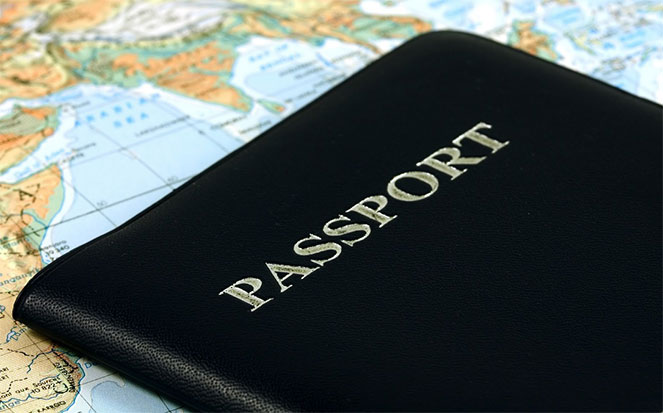Stateless persons: who are stateless persons
A stateless person or, as it is also commonly called, a stateless person is a kind of collective image of a cosmopolitan - a real citizen of the world who has no citizenship and no relation to a particular nation. This worldview, culture or the consequences of the current situation, each of them is free to determine independently. Regardless of this, stateless people continue to represent a wide stratum of society that claims to respect their rights and is ready to fulfill the duties assigned by the host state.
general information
Let's immediately understand what a stateless person is in Russia. So, according to Art. 2 of the Federal Law "On the legal status of foreigners in the Russian Federation", the legislator recognizes as stateless individuals individuals who do not have a Russian passport, as well as who do not have another state and are unable to provide evidence of its presence or evidence that would allow establishing the individual's citizenship.
According to the UNHCR, the problem of statelessness today affects about 12 million people around the world.
The organization is confident that apatriism has a negative impact on the lives of stateless people, as it deprives them of the opportunity to fully participate in public life and prevents the full realization of civil rights and freedoms. Since statelessness is a legal anomaly, the UN, together with its member countries, is actively working to prevent and eliminate statelessness. The problem, in particular, is solved within the framework of effective national legislation: for example, according to the Russian Federal Law “On Citizenship”, a citizen cannot renounce the citizenship of the Russian Federation if he does not have another passport or guarantees of obtaining one. That is, a Russian in practice cannot become a stateless person.
It should be understood that stateless people and dual nationals are radically different subjects. Both are recognized and not prohibited by Russian law, but if the former do not have citizenship at all, then the latter do, and if they have a Russian passport, they are almost always recognized as Russians.
Let us note that at present there is no clear understanding of the extent of statelessness in Russia. The information provided by the migration authorities is considered underestimated: according to the Russian authorities, about 31 thousand people are called stateless on the territory of the Russian Federation, 13 thousand of whom have a temporary residence permit, and 18 thousand -. At the same time, about 15,000 stateless persons receive Russian citizenship every year.
However, according to the 2010 census, about 180,000 people identified themselves as stateless. With this in mind, the Russian Federation, with the assistance of the UNHCR, continues to work on improving the strategy for preventing statelessness, developing more effective national legislation and facilitating the obtaining of a Russian passport by stateless persons.
Causes of statelessness
Statelessness, as we have already said, is a large-scale legal anomaly against which the UN countries launched an active struggle. You can become stateless for various reasons, caused both by the internal convictions of a particular person, and by circumstances that have nothing to do with the will of a citizen (more on illegal migration).
Representatives of the international community are actively combating the causes of statelessness, which usually include:

Legal status of stateless persons in the Russian Federation
Despite the absence of a clear legal connection between the state and a stateless person, most countries build their migration policy towards stateless persons in a very democratic way. Many countries provide stateless people with a status, if not equal, then close to the status of a citizen of the country. Stateless persons on the territory of the Russian Federation also have a similar status.
So, according to Part 2 of Art. 2 of the Federal Law "On the legal status of foreigners in the Russian Federation", the concept of "foreigner", for the purposes of this law, includes the concept of "stateless person". That is, in its legal status and legal status, a stateless person is considered by the Russian authorities as a foreign citizen of another state. A foreign citizen, in turn, according to Art. 4 of the law, has equal rights and performs equal duties with the citizens of Russia. True, with some exceptions.
Thus, the rights of stateless persons are limited, in particular, in relation to:
- Voting rights. Stateless persons do not have the right to participate in elections and referendums, do not have the right to be elected to public authorities, do not have the right to hold public office and public service positions.
- property rights. They are prohibited from owning certain types of land plots, they are not provided with housing for social rent, they are not provided with subsidies, they are not allowed to be founders of mass media.
- Professional rights. Those who managed to obtain the status of statelessness cannot be captains of aircraft and sea vessels, senior assistants and radio specialists, notaries, prosecutors, judges.
The rest of the spectrum of civil rights, including the right to education, medical care, social security, employment and the exercise of their professional competencies, are guaranteed to stateless persons in Russia.
To officially obtain the status of a stateless person, you need legal entry and legal stay on the territory of the Russian Federation, including passing migration registration, obtaining a temporary residence permit and a residence permit. A temporary residence permit, like a residence permit, is issued to stateless persons on a general basis, if there is no right to preferential conditions, such as issuing a TRP outside the quota or a residence permit without first obtaining a TRP.
To exercise other civil rights, a stateless person needs to obtain a Russian passport. Obtaining citizenship by a stateless person, regardless of the length of his stay in Russia, is carried out in a general or simplified manner, in accordance with Chapter II of the Federal Law "On Citizenship". You can learn more about ways to obtain citizenship.
Documents of stateless persons
The issue of documentary confirmation of the identity of stateless people is particularly relevant. Since a passport is issued only to persons with citizenship, it is obvious that stateless persons must have some other document proving their identity. According to part 2 of Art. 10 of the Federal Law "On the legal status of foreigners in the Russian Federation", the "passport" of a stateless person may take the form:
- a document issued by migration or other authorities of another country, if it is recognized by Russia (including under an international treaty) as such, which certifies identity;
- a document confirming the TRP on the territory of the Russian Federation;
- a document confirming a residence permit in the Russian Federation;
- another document that is recognized as certifying in accordance with the law (according to Article 27 of the Convention on the Status of Stateless Persons, these can be travel documents, for example, a visa or certificat d`apatrid - a document for stateless persons issued back in the USSR).
Documents for a stateless person are issued in accordance with the procedure established by law by the migration authorities of the country in which he resides. At the same time, according to Art. 28 of the above Convention, the participating countries can freely issue documents proving their identity to stateless persons, and favorably treat the issue of their issuance to persons who do not have such documents. 
To obtain any identity document, this person must be identified.
The identification of a stateless person takes place in accordance with Art. 10.1 of the Federal Law "On the legal status of foreigners in the Russian Federation".
For this stateless person:
- submits an application for identification to the migration authorities;
- provides written information necessary to establish his identity;
- names specific witnesses who can confirm his identity;
- undergoes a fingerprint examination;
- goes through the identification process and so on.
Based on the results of the inspections, the migration authorities draw up a protocol. If, as a result, it is possible to confirm the personal data of a stateless person, he is issued an identity statement, on the basis of which he can carry out a further legalization procedure.
Federal Law "On migration registration of foreigners and stateless persons"
Foreigners and stateless persons who are on the territory of Russia are required to undergo migration registration. According to Art. 29.1 of the Federal Law “On the legal status of foreigners in the Russian Federation”, migration registration of stateless persons is carried out in accordance with the Federal Law “On migration registration of foreigners and stateless persons”. As for the bipatrides, they are.
This accounting is one of the forms of state regulation of migration processes and is aimed at fixing the movements of stateless people across the territory of the Russian Federation, their transit movement, change of residence, and so on.
The Federal Law “On Migration Registration of Foreigners and Stateless Persons” determines:
- general principles of migration registration, grounds for its implementation;
- powers of migration authorities;
- obligations of stateless persons in the framework of registration procedures;
- accounting rules at the place of residence or stay;
- responsibility of persons violating migration legislation.
In this context, stateless persons staying on the territory of the Russian Federation or planning to visit its territory are advised to familiarize themselves with the main provisions of this law.
However, at the same time, one should not forget about the Rules approved by Decree of the Government of the Russian Federation No. 9 dated January 15, 2007, which, in accordance with the above law, clarified the specific procedure for passing migration registration.
Conclusion
Stateless persons are people who do not have a nationality. Statelessness is considered a major problem within the UN. But, despite the limited legal status, stateless persons have a wide range of rights and opportunities if they are legally located on the territory of Russia. Despite the absence of a passport, their identity can be confirmed by a number of other documents that are issued after passing the identification procedure. At the same time, if stateless persons are on the territory of the Russian Federation, they are subject to migration registration.
Stateless Persons: Video




